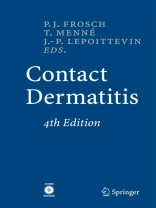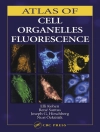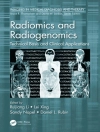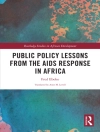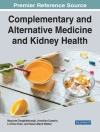It is an unusual event for a textbook covering such a national and international networks and the use of highly specialized field as contact dermatitis to be standardized methodology, a highly differentiated published in its fourth edition within a time period picture can now be painted; we know the major p- of 13 years. When the European and Environmental fessions at risk, as well as the influences of age and Contact Dermatitis Research Group was founded in various cofactors. This is a solid basis for preventive 1985, one of the major goals was to edit a textbook of measures. A new allergen, described in one center, high scientific standard written by renown experts can now be tested on a large scale in a short time and keep it regularly updated. The greatest danger period. If the data evaluation shows an unacceptably for a textbook is to become outdated – then it stays high rate of sensitization in the exposed population, on the bookshelf and is rarely consulted. The contin- regulatory measures will be undertaken to protect uous flow of new medicaments, the fascinating the consumer. A recent example is the “methyldib- improvements in diagnostic image analysis and ever- mo glutaronitrile story. ” changing operative procedures are the reasons for These and other issues of importance are covered considerable knowledge deficits in old textbooks, in depth in the newest edition of this textbook.
Spis treści
Clinical relevance of patch test reactions.- Historical Aspects.- Basic Features.- Mechanisms in Allergic Contact Dermatitis.- Molecular Aspects of Allergic Contact Dermatitis.- Mechanisms of Irritant Contact Dermatitis.- Immediate Contact Reactions.- Mechanisms of Phototoxic and Photoallergic Reactions.- Pathology.- Histopathological and Immunohistopathological Features of Irritant and Allergic Contact Dermatitis.- Ultrastructure of Irritant and Allergic Contact Dermatitis.- Individual Predisposition to Irritant and Allergic Contact Dermatitis.- Epidemiology.- Dermatotoxicology.- Skin Penetration.- Predictive Tests for Irritants and Allergens and Their Use in Quantitative Risk Assessment.- Allergic Contact Dermatitis in Humans — Experimental and Quantitative Aspects.- Clinical Features.- General Aspects.- Clinical Aspects of Irritant Contact Dermatitis.- Systemic Contact Dermatitis.- Phototoxic and Photoallergic Reactions.- Pigmented Contact Dermatitis and Chemical Depigmentation.- Hand Eczema.- Protein Contact Dermatitis.- Noneczematous Contact Reactions.- Diagnostic Tests.- Patch Testing.- Atopy Patch Testing with Aeroallergens and Food Proteins.- Patch Testing in Adverse Drug Reactions.- Allergens Exposure Assessment.- Skin Tests for Immediate Hypersensitivity.- Photopatch Testing.- Noninvasive Techniques for Quantification of Contact Dermatitis.- Allergic Contact Dermatitis Related to Specific Exposures.- Allergens from the Standard Series.- Cosmetics and Skin Care Products.- Allergens of Special Interest.- Metals Carola Lidén, Magnus Bruze, Torkil Menné.- Metalworking Fluids.- Plastic Materials.- Topical Drugs.- Dental Materials.- Clothing.- Shoes.- Occupational Contact Dermatitis.- Health Personnel.- Plants and Plant Products.- Pesticides.- Contact Allergy in Children.- Prevention and Therapy from Contact Dermatitis (with Special Reference to Occupational Dermatology).- Legislation.- International Comparison of Legal Aspects of Worker Compensation for Occupational Contact Dermatitis.- Computers in the Management of Contact Dermatitis.- Contact Dermatitis Research Groups.- Patch Test Concentrations and Vehicles for Testing Contact Allergens.- Patch Testing with the Patients’Own Products.- Dictionary of Contact Allergens: Chemical Structures, Sources and References.
